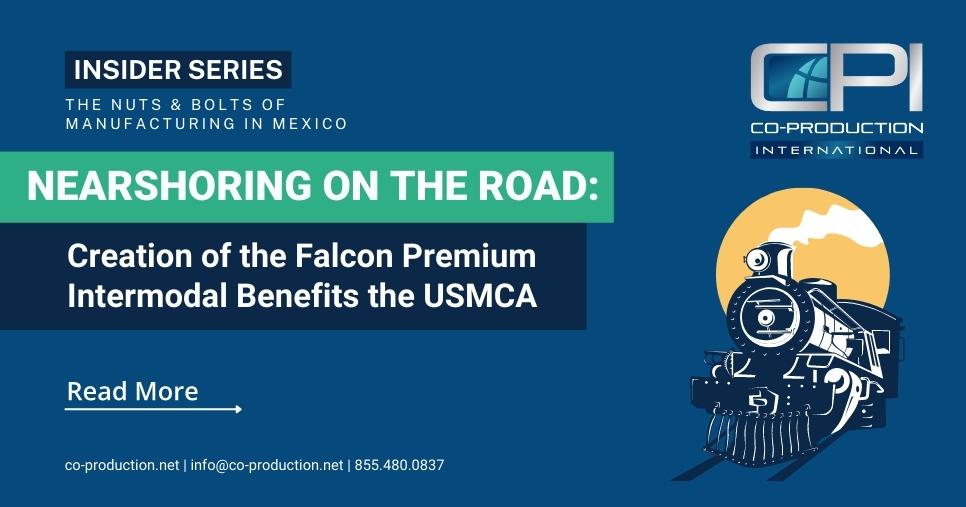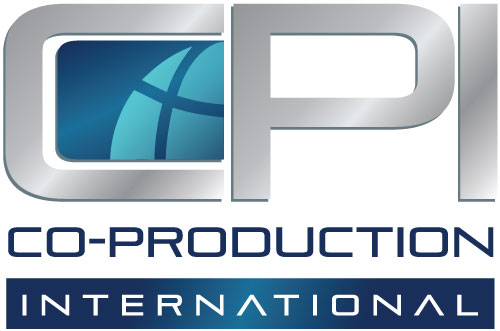Canadian National Railway (CN), Union Pacific Railroad and Grupo Mexico Transportes (GMXT) announced the creation of the Falcon Premium intermodal service to connect United States-Mexico-Canada.
The service will make it possible to move goods between the three nations in less time and to meet the requirements of nearshoring.
The companies indicated that all CN's points of origin within Canada and Detroit, Michigan will be directly connected to the GMXT terminals in Mexico, such as Monterrey, Nuevo León and Silao, Guanajuato.
The CEO of GMX, Fernando López, stated that the company is fully committed to using its train service to actively contribute to the logistical solutions that North America needs to push the region's economic growth. To address the needs requested by nearshoring, he explained, "The Falcon Premium service is tailored with the goal of giving new solutions to consumers". The companies emphasized that intermodal customers moving food, home goods, automotive parts, and temperature-controlled products will all immediately benefit from this service.
The three railroads' new service comes shortly after CPKC announced a significant partnership with the Schneider National trucking company to take on that company's intermodal shipments to and from Mexico. The new railroad will maximize shipping weights between Mexico and Canada for greater efficiency for customers and will also contribute to reducing greenhouse gas emissions by reducing rail miles and significantly converting from truck to rail.
The creation of a new North American rail logistics chain, offering highly efficient single-line service to many of the largest markets and ports across the continent, takes place against the backdrop of North American economic integration under the United States-Mexico-Canada Agreement (USMCA).
Benefits of the railroad in the USMCA
The United States-Mexico-Canada Agreement (USMCA) is a trade agreement that was signed into law in 2020. This is a multilateral free trade agreement that was created with the intention of benefiting trade flows in North America while bolstering channels for investors, exporters, importers, non-governmental groups, and governments to seek to resolve problems and disputes.
-
Improved connectivity: The development of new railroads could improve connectivity between the three countries, making it easier to move goods and people across borders. This could lead to increased trade and economic growth.
-
Increased efficiency: New railroads could be designed with modern technology and streamlined processes that could increase the efficiency of cross-border transportation. This could lead to cost savings and faster delivery times.
-
Reduced emissions: Rail transportation is generally considered to be more environmentally friendly than other modes of transportation, such as trucks and airplanes. The development of new rail infrastructure could help reduce emissions and improve sustainability.
The commerce between the United States, Mexico, and Canada is increasing by an average of 6% from 2019 to 2021, returning to pre-COVID-19 levels. As the US's greatest export market and trading partners, Canada, and Mexico account for more than twice as much trade as it does with China, with a record 75% of their purchases coming from the US.
Benefits of nearshoring in the USMCA
Nearshoring is the practice of relocating business operations or production to a nearby country, often to take advantage of lower labor costs, reduced shipping times, and other advantages.
-
Lower costs: Nearshoring can help companies reduce costs by taking advantage of lower labor costs, as well as potentially lower transportation and logistics costs due to shorter shipping distances.
-
Faster delivery times: Because nearshoring involves relocating production or operations to a nearby country, products can be shipped more quickly to their final destinations. This can help companies improve customer satisfaction and compete more effectively in the market.
-
Improved supply chain resilience: Nearshoring can help improve supply chain resilience by reducing dependence on more distant suppliers and providing greater control over the production process. This can help companies better manage risks and respond more quickly to changes in demand or disruptions in the supply chain.
The USMCA includes rules of origin requirements that specify the percentage of a product's components that must be made in North America to qualify for preferential treatment under the agreement. Manufacturing in Mexico can help companies meet these requirements and take advantage of the benefits.
The nearshoring can be a beneficial strategy for companies looking to take advantage of the opportunities presented by the USMCA. By relocating production or operations to Mexico, companies can reduce costs, improve supply chain resilience, and comply with the rules of the agreement.
A shelter company can offer several advantages for companies looking to establish operations in a foreign country. By using a shelter company like Co-Production International, companies can benefit from administrative and legal support to help navigate the complexities of doing business in a foreign market. This includes assistance with payroll, accounting, and legal support, human resources, which can help reduce costs for companies and take advantage of the opportunities presented by the USMCA and nearshoring.




.png)







